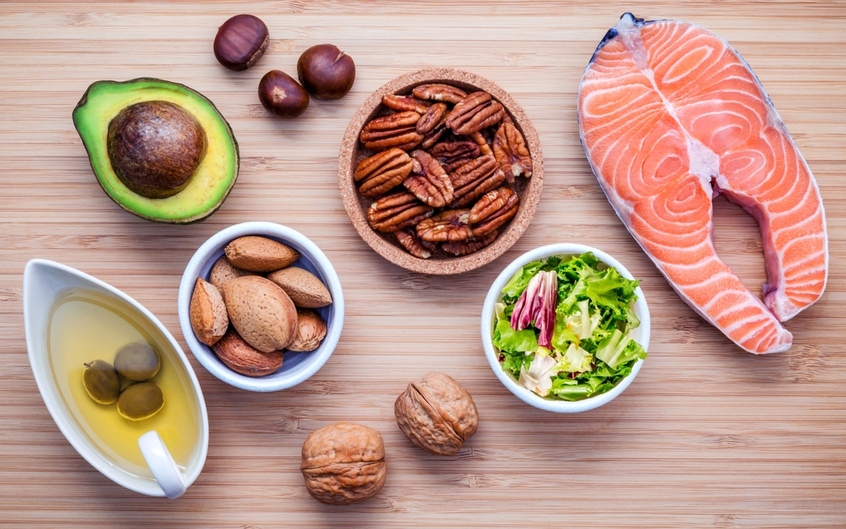
by Alex Teo
Alex Teo, based in Singapore, is currently a director, Research & Development and Scientific Affairs for Asia Pacific at Herbalife Nutrition

For many Malaysians, the quest for good health often revolves around visible indicators like a lean physique and high energy levels. However, how frequently do we think about what lies beneath the surface – like the health of our bones?
In the Asia-Pacific region, osteoporosis affects up to 30% of women aged 40 and above and up to 10% of men. Our bones are the silent architects of our well-being, supporting our structure and our ability to stay active, remain productive members of society, and live longer in good health. This is why having a proactive approach to bone health is essential.
Preventing osteoporosis: Diet and nutrition
Bone health is not just a concern for the elderly but a lifelong endeavour that begins in early adulthood. With the expected significant rise in Malaysia’s aging population from 8.1% in 2024 to 14.5% by 2040 its becoming increasingly important for Malaysians to pay attention to their bone health. Bone mineral density (BMD) typically peaks during the third decade of life and gradually declines with age, making investing in skeletal strength before that milestone important. Bottom of Form
A balanced diet rich in bone-strengthening nutrients lays the foundation for a resilient skeletal structure, significantly reducing the risk of osteoporosis later in life. Emerging evidence suggests that the relationship between diet and bone health is integral to a holistic approach to aging gracefully.
While genetics play a role in bone density, nutritional choices are powerful determinants of our overall bone health. By prioritising nutrient-rich foods early on, we can stave off the debilitating effects of bone loss as we age.
Nutrients for healthy bones
Several key nutrients are at the core of maintaining healthy bones, each contributing uniquely to skeletal strength. Calcium is perhaps the most recognised, serving as a major building block of bone, comprising 99% of the body’s calcium stores. For adults, women should aim for 1,000 to 1,200 mg per day, equivalent to about three cups of milk, while men should target 1,000mg, or approximately 2.5 cups of milk daily. Rich sources of calcium include milk and dairy products, leafy greens, and fortified foods.

Vitamin D plays a crucial role in calcium absorption, making it a vital partner in bone health. Despite being a tropical country with abundant sunlight, getting sufficient vitamin D intake is recommended. The recommended daily allowance varies, but generally, 15 to 20 micrograms is sufficient for most adults. Safe exposure to sunlight and a diet including fatty fish, fortified milk, and supplements are the most effective ways to achieve optimal vitamin D levels.
Other vital nutrients include magnesium and phosphorus, which play a part in bone formation and maintenance. However, proteins, which are critical to providing the framework for bone structure, are also often overlooked. A diet that includes these nutrients will go a long way in achieving optimal bone health.
Tips for optimal consumption
Timing and moderation are essential when it comes to nutrient intake. Vitamin D increases absorption of calcium. Small intakes of calcium throughout the day may result in better absorption as well as minimising side effect such as constipation. Pairing calcium with vitamin D and magnesium can further boost its efficacy.

While sunlight is an excellent source of vitamin D, many individuals may require supplements, especially during the rainy seasons with less sunlight. However, moderation is key, as excessive intake may lead to vitamin D toxicity. Similarly, limit caffeine, salt, and alcohol consumption, as these can hinder calcium absorption and contribute to a loss in bone density.
Lifestyle choices
Nutrition is only part of the equation. Lifestyle choices, such as the following, can help solve the problem:
- Regular weight-bearing exercises or activities like walking, dancing, and resistance training stimulate bone formation and increase density.
- Maintaining a healthy body weight – being underweight can lead to bone loss, while excessive weight may put undue stress on the skeletal system.
- Quit smoking and limit alcohol intake – studies have shown that smoking leads to a decrease in bone density, while heavy alcohol use can interfere with calcium balance.
Incorporating bone-friendly habits into daily life can mitigate the risk of falls and fractures as we age. Good posture, balance exercises, and ensuring a safe living environment are all integral to a proactive approach to bone health.
As we journey towards our golden years, it’s important to nurture our skeletal health as part of a holistic health regimen. Strong bones help pave the way for a strong life, so let’s invest in them today for a healthier tomorrow.
* The views expressed herein are strictly the personal opinion of the writer and do not necessarily represent the views of YamChaTime.







